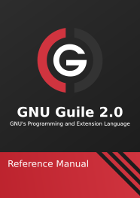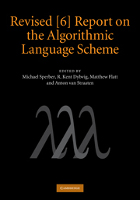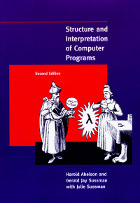Learn
Use the documentation listed here to get you started using Guile. If you get stuck and need some help to figure something out, don't be afraid to ask the Guile community that hangs out at the #guile channel on the Freenode network, or subscribe to the guile-users mailing list. Also, don't forget to exercise your freedom to study the source code of the software written with Guile; that's another great way to learn!
Tutorials
Tortoise: Extending a C program with Guile
This tutorial by Daniel Kraft explains step-by-step how to use guile in a straightforward Logo-like application.
Reference manuals

Guile 2.0
The current stable release series. Guile's reference manual is also included in each Guile distribution and should be accessible via Emacs' Info mode once you have installed Guile.
Hard copies of the Guile 2.0 Reference Manual are available from Network Theory, Ltd.
Reference manuals for future and older versions of Guile:
- Guile 2.2 (development branch)
- Guile 1.8 (the old stable release series)
- Guile 1.6 (the very old stable release series)
Scheme resources

The Revised6 Report on the Algorithmic Language Scheme
The most recent Scheme standard, for which Guile has partial support. This report includes an overview of Scheme and a formal definition of the language and its standard libraries.
The Revised5 Report on the Algorithmic Language Scheme
The previous Scheme standard. Guile implements it.
The Revised4 Report on the Algorithmic Language Scheme
An older revision of the Scheme standard.
Scheme Reports web site
Where standardization discussions happen.
The Internet Scheme Repository
A good source of links, code, and documentation for scheme.
Schemers.org
A list of Scheme resources including documentation, software, communities, jobs, and events.
MIT's Scheme home page
Not quite as extensive as the Scheme Repository or Schemers.org.
Scheme Requests for Implementation
Contains proposals for a number of Scheme extensions. Many of these tend to exist in one form or the other in a lot of the different Schemes, but can have wildly different interfaces. The SRFI process is essentially aimed at making these non-standard features more standard, without actually being standard (see also: obfuscated). Guile 1.8 implements a large number of SRFIs.
Greg Badros' Scheme Lecture Notes
A set of slides that touch on a variety of subjects related to scheme programing, including samples of similar code written in C and scheme, lambda calculus, and lists.
Suggested bibliography

Structure and Interpretation of Computer Programs (SICP)
An influential text used at MIT's as the basis for entry-level computer science courses. The material is aimed at instructors using SICP as a course text, and at people using the book for self-study.